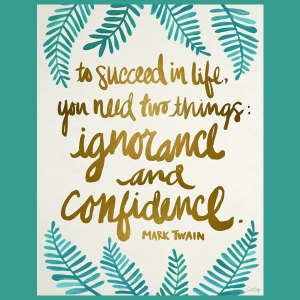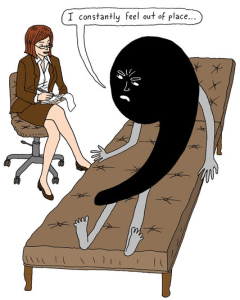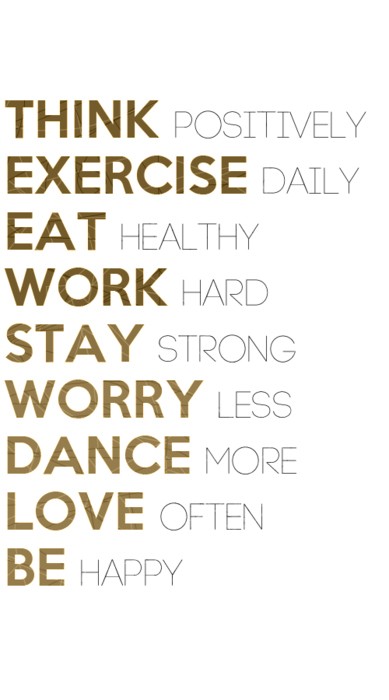Soooo, I thought we would touch up on a subject that tends to have a lot of you scratching your head and wondering how to simplify your emailing in English.
I recently came across this video on a teacher explaining a simple way of using common expressions in your emails. She has divided the topics into comprehensive sections for you to look at and take note on.
I always tell my students, you do not need to make email complicating. I suggest you stick to the expressions you like best and use them on repeat. You can also copy expressions other emails include if they make you feel comfortable and they are easy for you to remember. And keep those emails short, concise and efficient. In other words, Keep it Simple!
All you need is a greeting, an introduction and/or reason for writing, any other information and a sign off. Once you have emailing down you can start getting a little more creative.
For example, I always use the lines:
I hope this email/message finds you well
I am writing regarding…or please find attached…
Please do not hesitate to contact me if you have any doubts
I look forward to hearing from you/seeing you soon/ working with you
Warm Regards,
Now it is your turn. What are some of your favorite lines to use when writing an email? How do you change your voice when trying to be formal or neutral?
Ok, let’s get down to business and skip the nonsense. More than once, in fact, countless times, I have been asked by students to work on emailing skills with them since it is one of the most frequent forms of contact they have with English and to make it worse, the most stressful since it is usually for work and/or important matters. So, I thought I would give you two very interesting websites that might help you through this tricky situation.
This British Council website gives you some great tips on improving your writing and exercises to go along with it. Maybe you can consider doing this over Winter break and see if you can add it to your list of resolutions?
And have you heard of grammarly.com?? It’s like the auto corrector on your WhatsApp, but better! It gives you a variety of words you can use (synonyms), corrects your grammar mistakes and helps you improve your writing skills. Best of all, you can get it for free on Chrome and have it on your desktop or laptop for those important emails you need to whip out for work in a dash.
You are running out of excuses to not have a properly written email.
Happy Thanksgiving Everyone! And thank you for being such great readers!!
As we get closer to tying up loose ends and considering New Year Resolutions, I thought we could work on a fun professional quiz this week to see if you are working in the sector that is right for you. And when we say, “right for you”, we mean, what makes you happy.
According to this The Guardian article, John Lees quoted, “Work isn’t the only thing that influences happiness, but it’s where you spend a big chunk of your waking life. Can it really make you happy? Many factors come into play – the role, the way you’re managed, the organisational culture, how much you like your colleagues – but work that matches your motivation and your interests is far more likely to keep you absorbed and reasonably contented.”
So, perhaps it is time to take a moment to answer these 10 simple questions, learn some new vocabulary and find out if you need to mind map your career…Have fun! https://www.glassdoor.com/blog/quiz-what-job-best-fits-your-life/
Photo Source Jerome Masi
Let’s talk about eloquence on a rainy Tuesday afternoon in October. Sentence structure and sharing our ideas clearly is so important in any language, but we know how tricky it can be to get those words into the right order when studying a new language. There really is no exception to the rule when speaking about word order in English, so the good news is that once you learn the rule, you will not make mistakes!
In Jason Kottke’s article, inspired by Mark Forsyth’s book The Elements of Eloquence Jason states, “…adjectives in English absolutely have to be in this order: opinion-size-age-shape-colour-origin-material-purpose Noun. So you can have a lovely little old rectangular green French silver whittling knife. But if you mess with that word order in the slightest you’ll sound like a maniac. It’s an odd thing that every English speaker uses that list, but almost none of us could write it out.”
While the Cambridge dictionary gives us a slightly different order: Opinion, Size, Quality, Shape, Age, Colour, Origin, Material, Type and Purpose, Noun.
In other words, for a native speaker, this order is intuitive and learned. We know exactly how to construct the sentence, but we wouldn’t know how to tell you what order those words should be in. It’s the typical comment, “that’s just the way it is…” but in all truth, there is an actual order to it.
So, why don’t we try? Put the following words into the correct order:
1. table, a, square, wooden, big:
2. the,cup, tiny, plastic, blue, expensive
3. black, small, box, Turkish, old, a
Want more practice? Check out these links:
http://learnenglish.britishcouncil.org/en/english-grammar/adjectives/order-adjectives
http://perso.wanadoo.es/autoenglish/gr.adwo.p.htm
http://www.learnenglishfeelgood.com/esl_adjectiveorder4.html
And an exercise on word order in general: https://www.ego4u.com/en/cram-up/grammar/word-order/exercises?02
Finally, a lovely poem on word order by Alexandra Teague:
That summer, she had a student who was obsessed with the order of adjectives. A soldier in the South Vietnamese army, he had been taken prisoner when Saigon fell. He wanted to know why the order could not be altered. The sweltering city streets shook with rockets and helicopters. The city sweltering streets. On the dusty brown field of the chalkboard, she wrote: The mother took warm homemade bread from the oven. City is essential to streets as homemade is essential to bread . He copied this down, but he wanted to know if his brothers were lost before older, if he worked security at a twenty-story modern downtown bank or downtown twenty-story modern. When he first arrived, he did not know enough English to order a sandwich. He asked her to explain each part of Lovely big rectangular old red English Catholic leather Bible. Evaluation before size. Age before color. Nationality before religion. Time before length. Adding and, one could determine if two adjectives were equal. After Saigon fell, he had survived nine long years of torture. Nine and long. He knew no other way to say this.
From Mortal Geography by Alexandra Teague. Copyright © 2010 by Alexandra Teague. Used by permission of Persea Books.
Post Insipired by: http://cupofjo.com/2016/09/grammar-rule/
Recently, I was talking to some students about Transitional Words and Linkers and the question on punctuation came up. When do I use a comma? Should I use a comma? Period (Full-Stop)? Help!
So I thought I would dedicate this post to the question on punctuation, especially in today’s instant messaging world:
6 Punctuation Mistakes that drive us crazy!!!!! Helpful video included…
Your Punctuation says it all In this article, the author describes how your punctuation defines you as a person.
Punctuation that doesn’t make you look very good 16 examples of mistakes that do not make you look very professional
Finally, what can happen when you get punctuation wrong…Grammar and punctuation ARE important
Some of you might have had to do get online and search for a way to express your condolences and/or sympathy for someone’s loss, illness or injury recently. Unfortunately, sometimes loss or injury happens and if it is already difficult for a native English speaker to express themselves politely, we can only imagine how much more challenging it could be for a person whose mother tongue is not English.
We would like to give you some tips on how to express your condolences ( an expression of sympathy, especially after someone’s death). Did you know that condolence is Latin for “to suffer together”?
If you receive news that someone’s family member or friend has passed away (to die, decease, pass on) and you want to send them a message, you should remember to make it polite and not too intrusive. The safest is to simply share your sympathy (support, encouragement) by saying the following:
- I’m sorry to hear about your loss
- My most sincere condolences
- My/Our thoughts are with you
- Thinking of you in your time of loss
- You have my/our deepest sympathy
- You have my/our sincere sympathy
- Please accept our most sincere sympathy
If you have heard that someone has been injured (hurt, harmed, wounded) or is ill you can say:
- We hope you recover soon
- We are sorry to hear about your ______________(accident/illness). We wish you a quick recovery
- Get well soon
- Best Wishes, I hope you are back in the swing of things soon! –slightly more informal
- Sending you my/our wishes for a quick recovery and good health
- Wishing you a speedy recovery!
When sending a message or email, just keep it short and simple and do not forget to offer to help if you think you have a close enough relationship. Take a look at a short example:
Condolences:
Dear ____________,
I am so sorry to hear about your loss. My most sincere condolences to you and your loved ones. If there is anything I can do to make these moments easier, do not hesitate to ask. All my best,
Recovery:
Dear ______________,
I am so sorry to hear that you are not feeling well. I hope you recover quickly and if there is anything you need, do not think twice about asking.
Get well soon,
**Now how about you try?
We hope this helps you and one more thing, some students tend to confuse this false friend and expression:
Sympathy= a common feeling, feelings of sorrow
Friendly= “simpatico” or kind, helpful, amicable
When you want to ask someone how they are doing, health-wise, we say: I hope you are doing well/better
Do not make the error of saying: I hope you are going well
Things are going well (i.e. work, life, love, etc): How are you doing? Oh great, thank you. Work is going well!
Your health is doing better (both physical and mental): I am doing better, thank you.
This post is for all of you who struggle with those annoying mistakes in English. Perhaps it will help you start the new year on the right foot.
Speaking of common mistakes, take a look at the title…a lot of times we confuse clue (a piece of evidence or information used in the detection of a crime) for tip (a helpful hint, warning, or other piece of information)
How to avoid 11 common grammar mistakes
12 Words even smart people get wrong
Photo Source: Comma Mistakes
We know most of you don’t celebrate Valentine’s Day and you probably call it a “Hallmark” holiday (aka Corte Ingles Holiday) but we can’t help showing you a little history on this very romantic day…
The History of Valentine’s Day (Level B2 and above–advanced vocabulary)
An Easy Step by Step Story (Level B1 and above)
See if you can answer these questions (in reference to the first video):
1. What did the Roman Pagans sacrifice and why?
2. In what century was St. Valentine’s declared?
3. What did Emperor Claudius II Ban? And why
4. Who would visit Father Valentine and why?
5. How much money does the holiday bring in annually to the USA, thanks to Cupid?
Photo Source: http://addictedtoconsumerism.tumblr.com/post/74047975663
It’s that time of year, new beginnings, new objectives…what are you planning to do to start off 2014? We propose the following and we think they are quite easy to maintain. Do you have any you want to add to the list? Happy 2014!
Photo source: http://maryrambin.tumblr.com/
A Brief Explanation on What We Do and Why We Do It.
Whenever we decide to learn something new and different, we can come across a lot of barriers or filters. The key to finding an easier way of understanding the unknown, is to first find out why we are interested in learning all about it. Is it for work? A personal objective? To make travelling easier?
Then we need to ask ourselves how we can become fully interested in learning that particular subject. Maybe if we include some great resources, music, real life situations and material that we can connect with, we will be fully entertained.
Once we find that balance, we start seeing the learning process, sometimes slow, but stable. We begin to connect not only with your objectives but also with your everyday life.
Finally, the big day comes when you have to put what you have learned into use, whether it is giving directions to a tourist on the street, writing a very important email to head office or presenting in front of a few people…when you finally do it, the magic begins and you become even more interested!
This is what we do here. We balance your personal interests, whatever they are, and make sure that you are always connected with your classes and always learning because when you finally reach your objectives, you feel accomplished. And because it forms part of life and learning…











